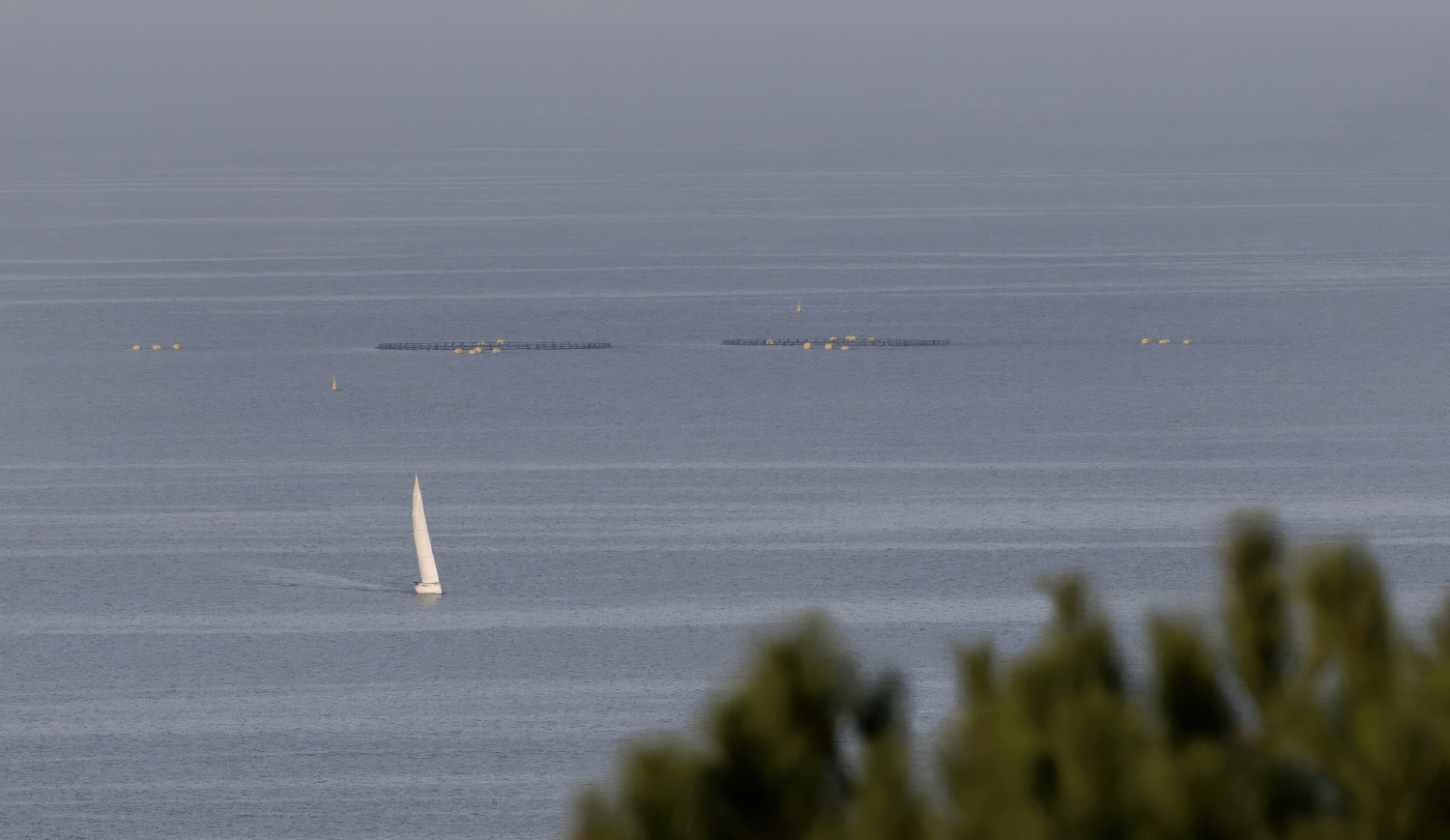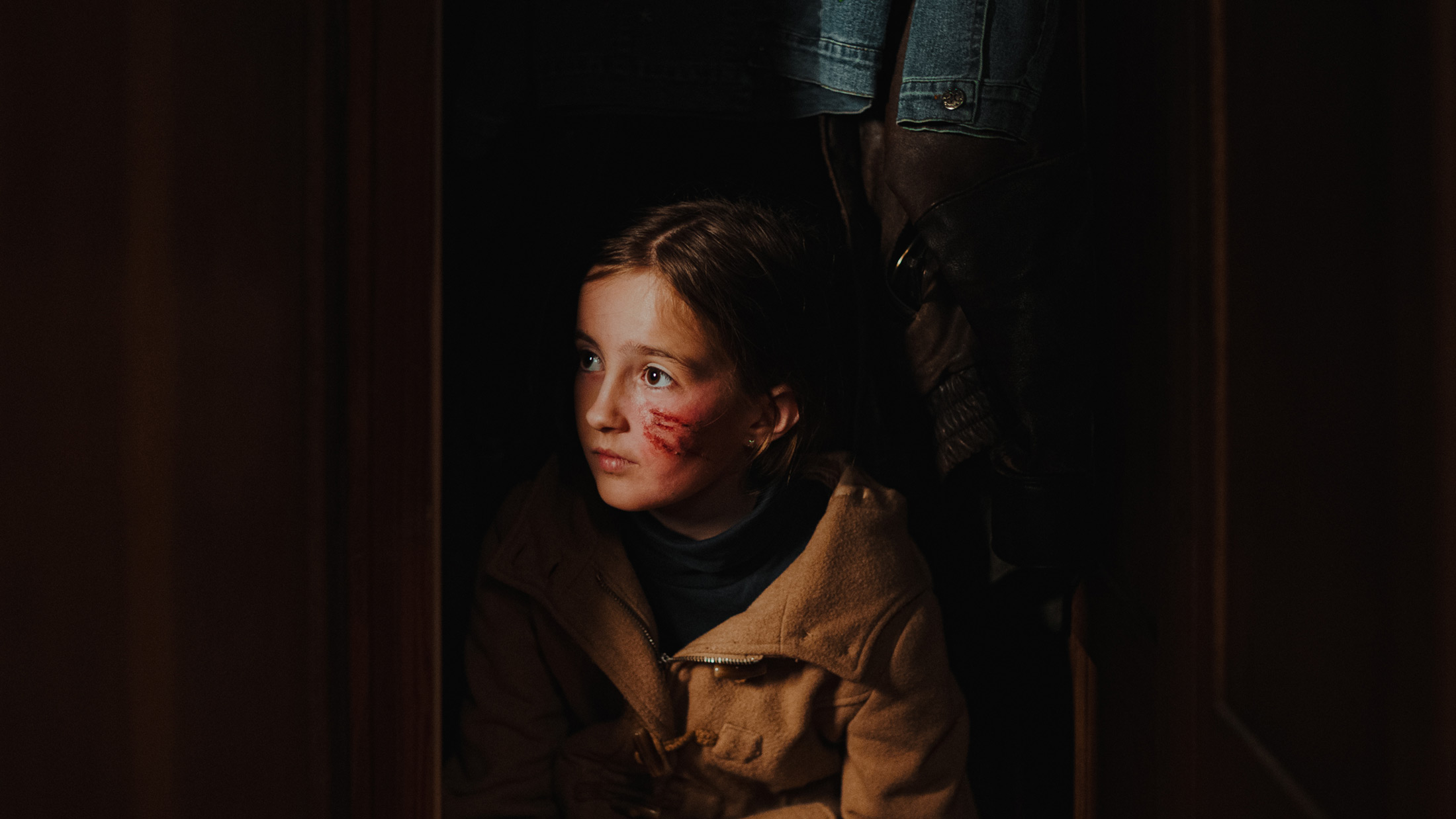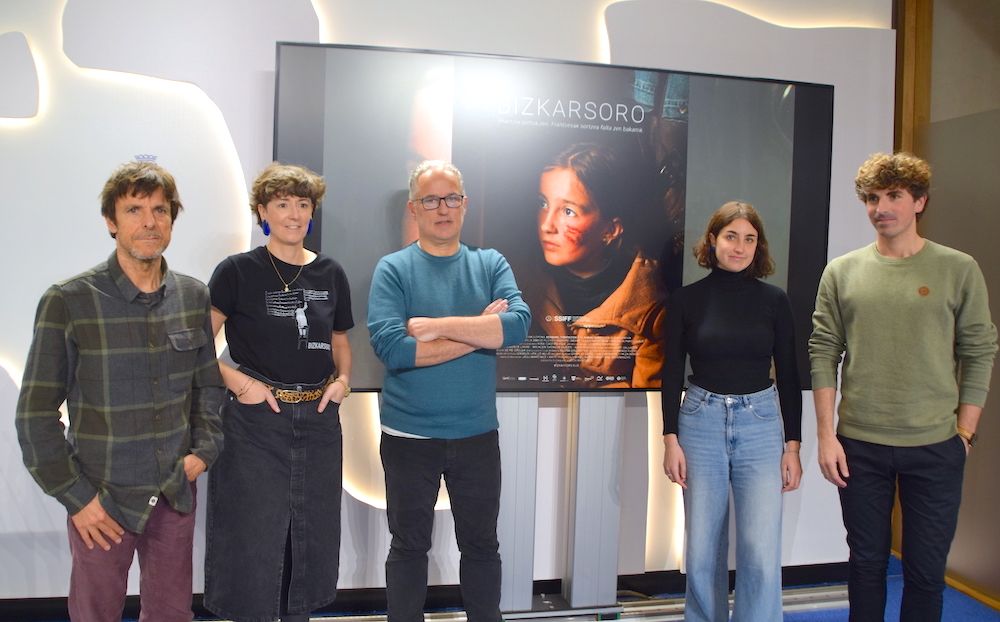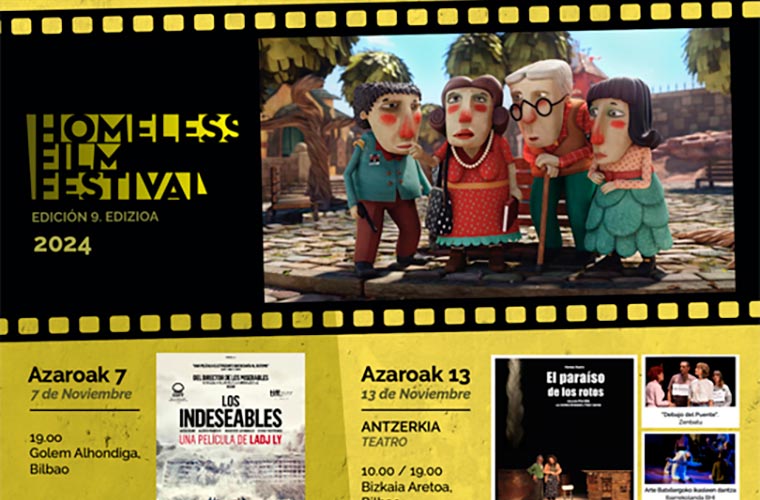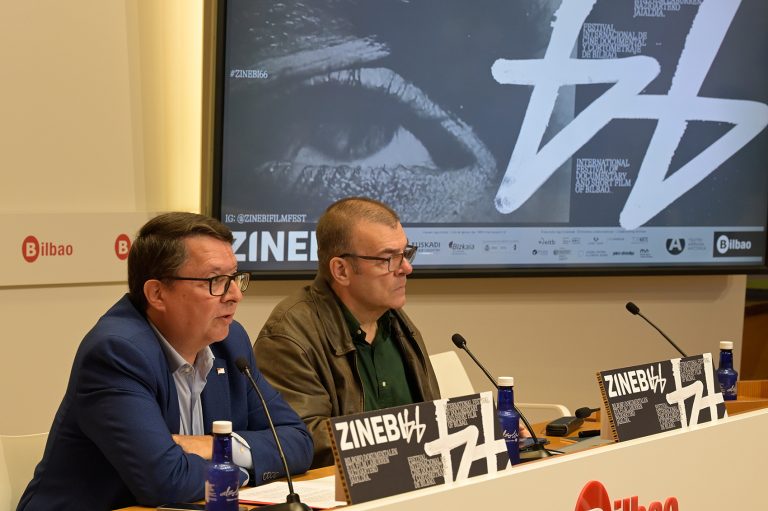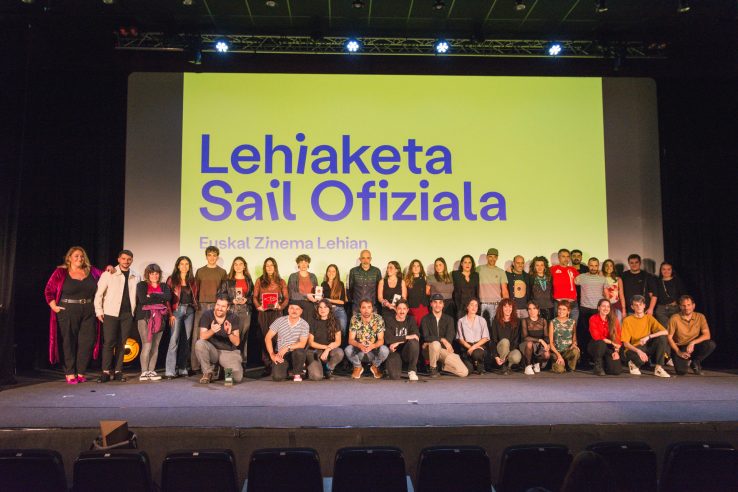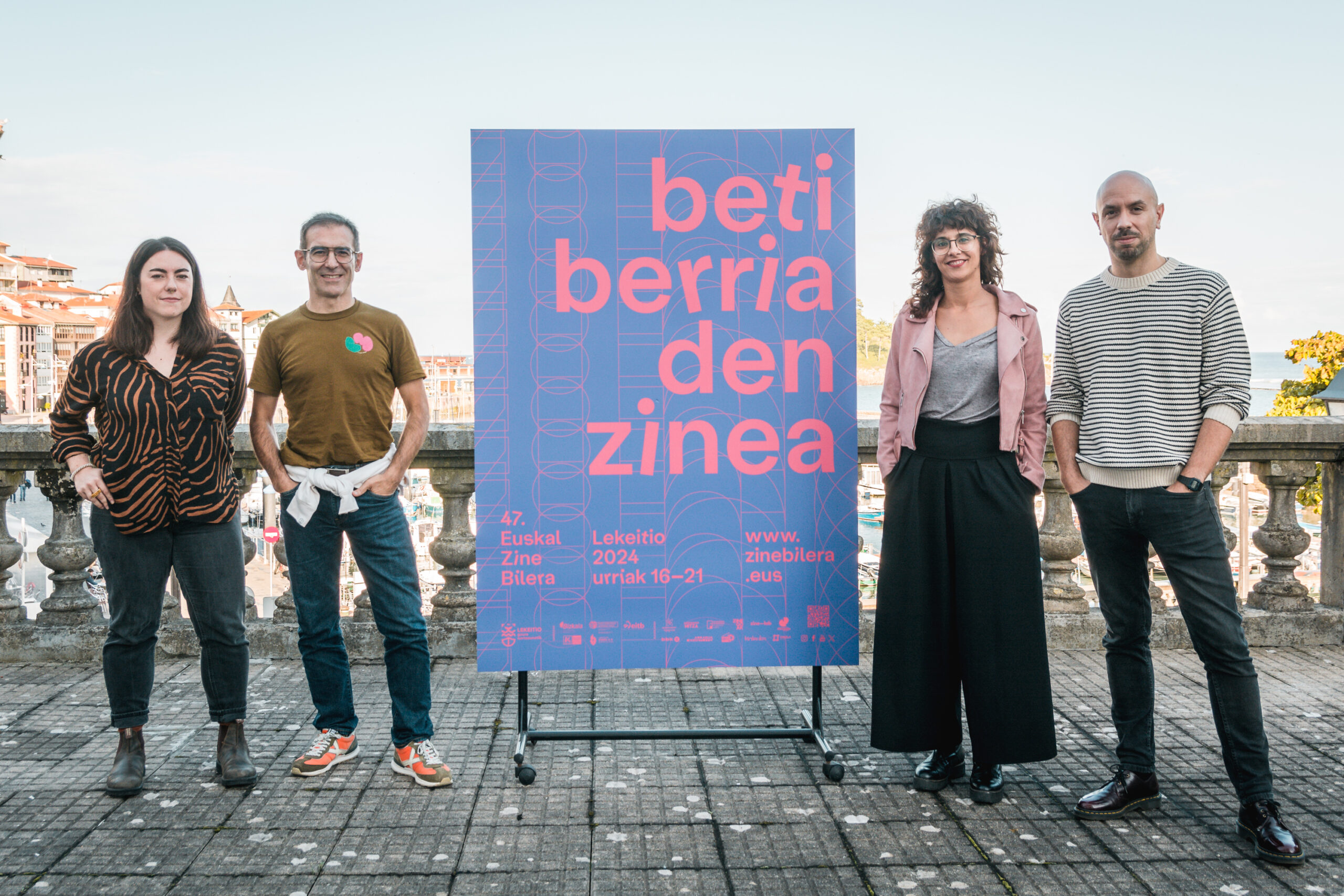“Audiovisuals have a great transformative power”
- Strings take to the San Sebastian Film Festival the director and screenwriter Esti Urresola Solaguren (Llodio, 1984). Red carpets with glass ceilings trap you in the occupation of prizes: Dust we are his work came to the preselection of the Goya Awards and the short Strings was awarded at the festival of Cannes.

Remove the hook. What stage is your life in?
Now I am between two waters: In May we present the short Strings, which has just begun its journey. We premiered next year 20,000 be-bees, once the recording is finished we are in assembly.
What is the effect or puncture of 20,000 bees?
I wanted to explain how gender and its influence on relationships have crossed each other. In history, Ane, a 40-year-old mother of three, is in an identity crisis and decides to return home from her mother. On this journey or situation, the daughter read as a boy takes the step of explaining who she is before the family. It is not children who make gender change, the transformation is carried out by the family or the environment. In the feature film I wanted to express the game of mirrors or the interaction between relationships.
You just attended the San Sebastian Film Festival. What's special about the red carpet?
The first steps in the audiovisuals I went through at the film festival, and I find it very exciting that the young man who was admiring the festival was presenting Strings today. It is fortunate to have in Euskal Herria such an important international festival. Our cinema is very beneficial and useful for the industry, it is a meeting point to which professionals from all over the world come without having to go to create relationships abroad.
On the other hand, as Strings presented, being in the Basque Country, the actors and agents who participated in the project have been able to come. I also invited the Cannes festival to the main chorus of Strings and they came by bus. My thing is community cinema, history has truthfulness because of them, that's the connecting path.
At the Festival de Cannes, this year he was awarded the Rail's d'Or Award for Strings. It's not your only significant achievement.
Paper voices picked up the Txapela de Oro de Cataluña and Nor nork got a mention at the Babel Minority Language Festival in Sardinia. Dust We are also very happy: He was a candidate for the Goya Awards (we were in the pre-selection of the four nominations, among the top fifteen). Then comes Strings and we go to Cannes. It's been wonderful and unthinkable.
What would you like it to be Strings?
Two factors led me to tell this story. On the one hand, the interests for ecofeminism. On the other hand, I found it interesting to tell how the social fabric is affected by being a big polluting company in the municipio.ConocI made the reality of Muskiz at an ecofeminist conference in Bilbao. As a listener, a very powerful image woke me up. In the forum there were many women over 60 years of age, referent in the local and active struggles. It gave me what to think: from a certain age onwards, women always appear in the roles of grandmother or Alzheimer or vulnerability.
On the one hand, the interests for ecofeminism. On the other hand, I found it interesting to tell how the social fabric is affected by being a big polluting company in the municipio.ConocI made the reality of Muskiz at an ecofeminist conference in Bilbao. As a listener, a very powerful image woke me up. In the forum there were many women over 60 years of age, referent in the local and active struggles. It gave me what to think: from a certain age onwards, women always appear in the roles of grandmother or Alzheimer or vulnerability.
In most of his works, the intention is to socially transform the female imaginary.
The women in my environment are not a reflection of what is portrayed on the screens, and I miss it. Audiovisuals have a great transformative power, and I'd like my work to make that sense.
Is Euskera an added value or a difficulty competing in international film festivals?
As far as distribution is concerned, it is a difficulty, as producers require dubbing (and this entails additional expenditure). But, in the face of festivals, doing so in a minority language can bring value añadido.Flores, Amama, Nora… Work has also been done in the official sections. We are gradually moving forward.
We are in the age of screens. Could this force the production chain to change?
Beyond the festival, the spectator’s profile is limited: I hope the link of the movie theater does not disappear. Most are women and are between 55 and 75 years old. The future is that young people don't go to the movies. I'm worried. In France, young people have a monthly bonus, and going to the movies is part of the leisure. On weekends, they don't program movies on TV, people go to the theaters... Spanish production and policy systems need a comprehensive review.
Female directors are not many. Is there a glass ceiling?
We're a majority in audiovisual schools, but how many women are we as film directors or gala chairs? In any case, it must be acknowledged that we are also dealing with these areas; in the departments of new directors or in the experimental departments there are many women… But in the official sections of festivals? The main sections of the festivals reflect the conservative machinery of the industry.
You need to move from the foreground to the general, zoom in to zoom out: How many years do women arrive at the first feature films? In which section of the festivals do they participate? How many films do you produce in total in your career?
For the future, what projects do you have?
20,000 bees. I don't want to act like a machine, I need rest to produce things. I want to reclaim the point of emotion until a story captures and pursues it.
Was it multiscreen, opportunity or risk?
“I am perhaps too romantic, but the movie theater has something that makes you enter the dark and not look at the phone: conscious or quality attention. If consumption patterns change, we will have to change production formulas. I'm not optimistic about this: consuming more and more means we don't lack productive work, but do we reflect on what we see? Does the flooded image leave a mark on your body?”











